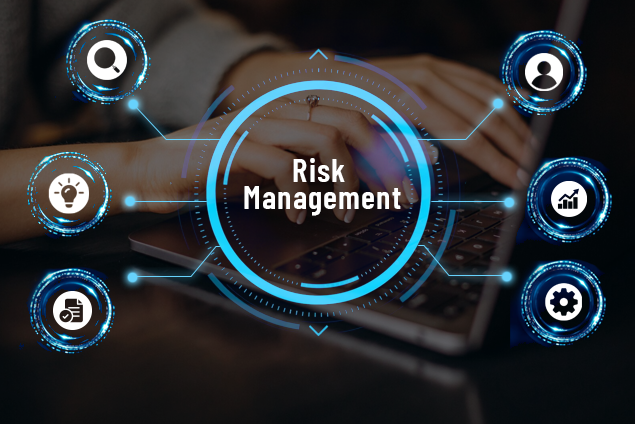Topics: Compliance Audits, Compliance Support Services, Talent Compliance
The Role of Compliance Support Specialists in Risk Management
Posted on November 16, 2023
Written By Sakshi Sharma

Regulatory compliance isn’t just about following rules—it’s about protecting your business from financial penalties, reputational damage, and operational risks. In industries like healthcare and staffing, where hiring regulations and credentialing requirements are strict, failing to meet compliance standards can lead to costly consequences.
This is where the role of compliance support becomes crucial. Compliance specialists help businesses manage risks, monitor regulations, and ensure adherence to industry standards. But what exactly does compliance support involve, and how does it impact risk management?
In this blog, we’ll explore:
- The role of compliance support in risk management
- Key responsibilities of compliance support specialists
- How compliance monitoring improves business performance
- Challenges and future trends in compliance
Understanding the Role of Compliance Support Specialists
Compliance support specialists are professionals who help organizations adhere to laws, regulations, and industry standards. They act as a bridge between regulatory requirements and business operations, ensuring that every process aligns with legal mandates.
Key Responsibilities of Compliance Support Specialists
Regulatory Compliance Monitoring
- Staying updated with federal, state, and industry-specific laws
- Identifying changes in regulations and ensuring timely adaptations
- Conducting compliance risk assessments to evaluate potential threats
Policy Development & Implementation
- Collaborating with various departments to create compliance policies
- Ensuring policies align with legal and ethical standards
- Providing guidelines for staff to follow best compliance practices
Employee Training & Education
- Conducting workshops to educate teams on compliance procedures
- Addressing industry-specific risks related to hiring and credentialing
- Ensuring all employees understand compliance requirements
Risk Assessment & Mitigation
- Evaluating compliance risks and implementing preventive measures
- Assessing past violations and creating corrective action plans
- Enhancing compliance risk management processes for long-term sustainability
Reporting & Documentation
- Maintaining records of audits, investigations, and compliance activities
- Ensuring transparency in compliance monitoring and risk assessment reports
- Preparing documentation for regulatory audits and inspections
Internal Audits & External Compliance Coordination
- Conducting compliance risk assessments to identify gaps
- Working with regulatory agencies to ensure compliance standards are met
- Handling external audits, inspections, and inquiries
The Role of Compliance Support in Risk Management
How does compliance support contribute to an organization’s risk management strategy?
1. Legal & Reputational Protection
Failing to meet compliance standards can result in lawsuits, fines, and damage to a company’s reputation. Compliance specialists ensure businesses avoid these risks by staying legally sound.
2. Enhancing Operational Efficiency
Strong compliance policies lead to structured workflows and streamlined processes, preventing errors that could lead to non-compliance.
3. Preventing Financial Losses
Non-compliance penalties are steep. Global financial penalties for regulatory violations reached $10.4 billion, making compliance risk management a critical investment.
4. Strengthening Customer & Stakeholder Trust
A company that follows compliance best practices gains trust from clients, employees, and regulatory bodies, fostering long-term growth.
5. Creating a Competitive Advantage
Companies with strong compliance frameworks stand out in industries where legal adherence is a differentiator, particularly in healthcare staffing and financial services.
Challenges & Future Trends in Compliance
While compliance specialists play a vital role in risk management, they also face evolving challenges. Here’s what’s shaping the future of compliance support:
1. Digital Transformation & Automation
AI-driven compliance monitoring tools are enhancing risk assessments by identifying potential violations in real-time. Companies must integrate these technologies for efficient compliance risk management processes.
- Data Privacy & Security Regulations
With rising data breaches, compliance support in risk management now includes stricter GDPR, CCPA, and HIPAA enforcement. Organizations must enhance their data protection strategies.
3. ESG Compliance (Environmental, Social, Governance)
Companies are being held accountable for ethical operations beyond legal compliance. Compliance monitoring is expanding to include sustainability, fair labor practices, and ethical sourcing.
4. Global Supply Chain Compliance
As companies expand globally, ensuring supplier compliance with legal and ethical standards is becoming a growing concern.
How QX Global Group Strengthens Compliance Support for Staffing Companies
QX Global Group’s compliance support services ensure that your staffing company is not in danger of unlawful hiring by taking into account candidates’ employment history, duration of employment, and role and prior performance in their previous job.
At QX Global Group, our compliance support specialists help staffing firms navigate complex hiring regulations by:
- Conducting thorough compliance risk assessments
- Implementing automated credentialing and background checks
- Ensuring every hire meets regulatory standards for legal employment
- Managing audits, documentation, and policy adherence.
By proactively managing compliance risks, we protect your business from legal troubles and help you build a more secure and compliant workforce.
FAQs
What are the key responsibilities of a Compliance Support Specialist?
A compliance support specialist is responsible for monitoring regulations, conducting risk assessments, developing policies, training employees, and managing compliance audits.
How do Compliance Support Specialists contribute to risk management?
They identify, assess, and mitigate compliance-related risks, ensuring organizations follow regulations and avoid legal penalties.
What industries typically employ Compliance Support Specialists?
Industries like healthcare staffing, finance, insurance, IT, and manufacturing require compliance support to meet regulatory standards.
How can companies benefit from having a Compliance Support Specialist on their team?
They help businesses avoid legal penalties, improve efficiency, protect reputation, and build a structured compliance framework.
Originally published Nov 16, 2023 08:11:09, updated Feb 12 2025
Topics: Compliance Audits, Compliance Support Services, Talent Compliance







